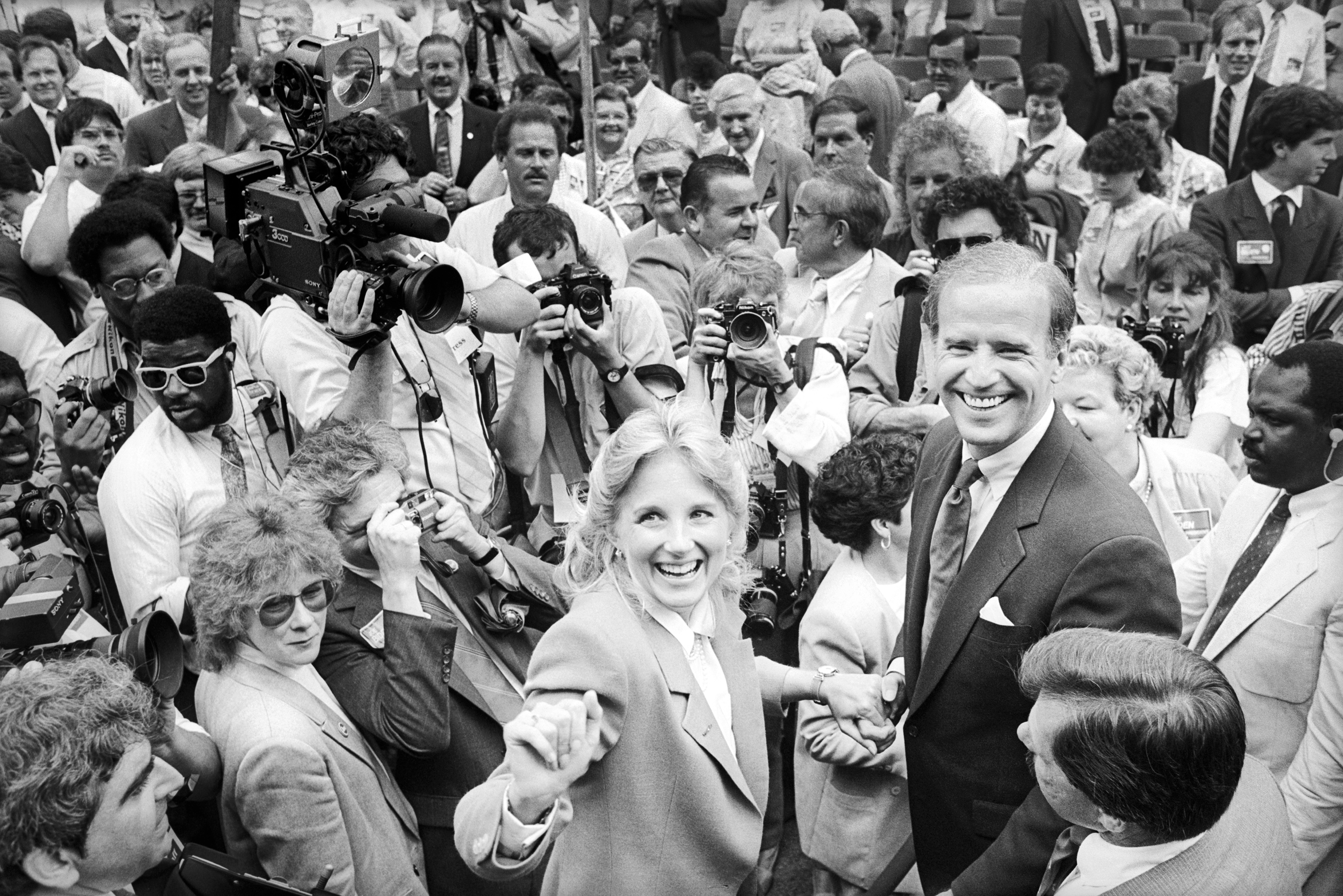The first time Joe proposed, he simply said, “I want us to get married.” It wasn’t a big deal — just an ordinary conversation on an ordinary day. I already knew how he felt, so it didn’t come as a surprise. I also knew I couldn’t say yes. But unbeknownst to me, Joe wasn’t just asking on his own accord. Beau and Hunter had recently cornered him in the bathroom one morning while he was shaving. “Beau thinks we should get married,” six-year-old Hunter told him. With their father understandably confused by this pronouncement, seven-year-old Beau explained, “We think we should marry Jill.”
Hearing that story later, I had to laugh — how often do our children understand the obvious answer before we do?
In the months prior to that conversation, the boys and I had been spending a lot of time together. When Joe worked late, I would go over to make dinner and keep them company. I would help pick them up from school sometimes, or we’d pass an evening watching TV. We started to build our own relationship separate from their dad.
Even at a young age, Beau was a lot like Joe. He was incredibly articulate and would never hesitate to express how he was feeling. He was kind and responsible.
Hunt was more like me. He didn’t want to talk about his feelings as much, and he didn’t always know how to express them when he was a kid, but he would always show you with his actions — he was warm and loving. If we were waiting in a lobby or watching TV, he would throw his arms around my neck and rest his head on my shoulder. He would look up at me with a twinkle of adventure in his eyes, and I knew we were going to have fun.
I was surprised by how much I enjoyed getting to know them, and though I had been a little hesitant about dating someone with kids, I found myself excited when I got to see them. I realized during those months how happy I was spending time with the boys. But that didn’t mean I was ready to get married.
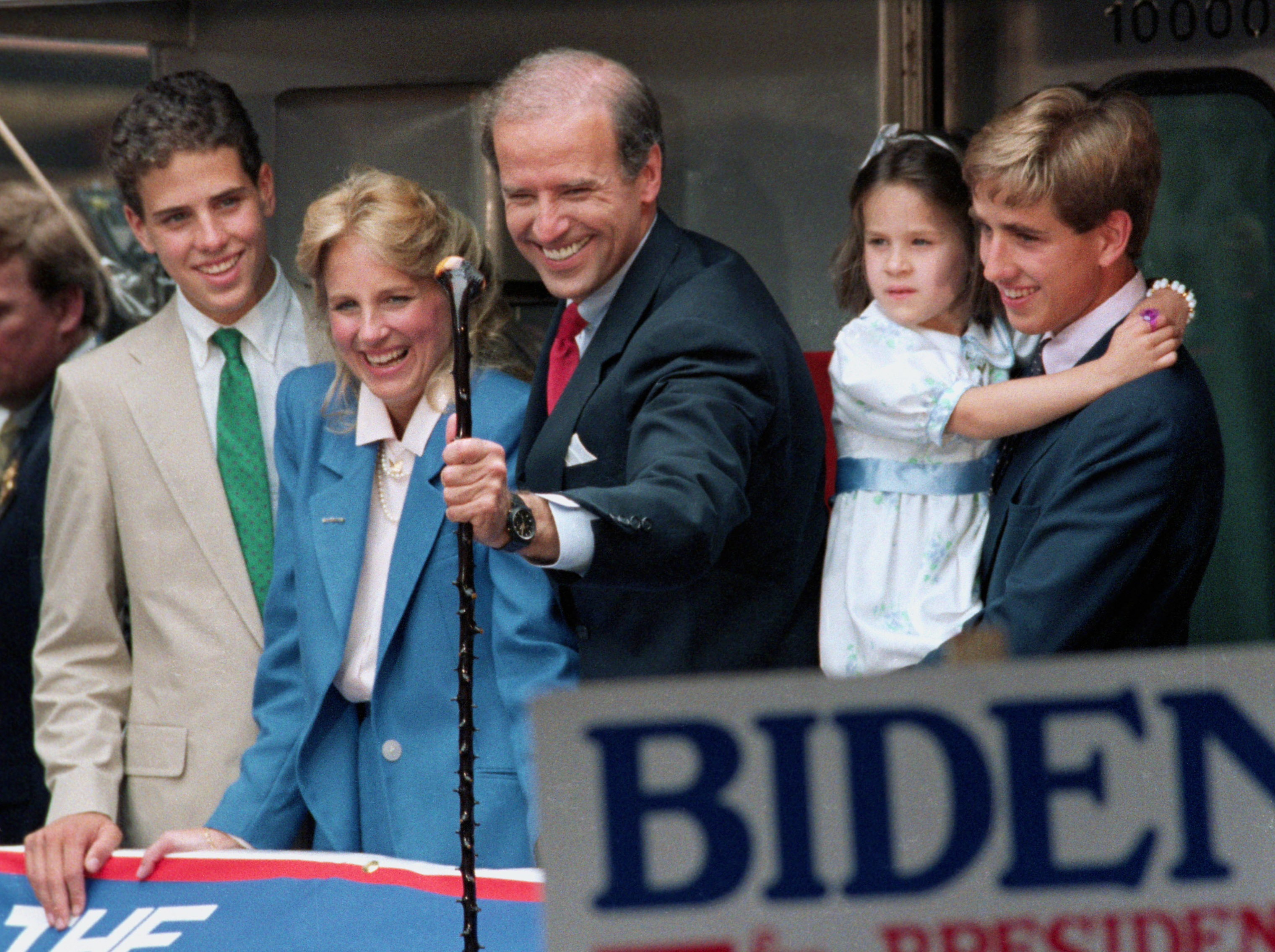
I saw my mother cry only one time, at my dad’s funeral. She didn’t even cry when her own parents died. I saw that stoicism as strength — and that strength was what I wanted for myself more than anything. I decided early that I would never let my emotions rule me.
I worked hard to live up to that with the kids, always fighting to keep control of myself, especially in times of hardship and adversity. They never saw me cry when Joe was lying near death at Walter Reed hospital after his two aneurysms in 1988, or when EMTs carried him down the steps of our house on a stretcher after he had a pulmonary embolism that same year. I shed no tears in front of them when we pulled out of the 2008 presidential race after a disappointing finish in Iowa, even though inside I was crushed.
As a political spouse, I’ve found that my stoicism often serves me well. In 1988, when Joe ’s first presidential campaign started to look bleak, people were constantly looking for cracks in our team. We all felt scrutinized, but I refused to show weakness. And later, when Beau got sick, we didn’t want it to become a national conversation — it was just too personal. We were holding out hope that he would recover. So we kept it to ourselves, and with the exception of a select few people, no one knew. I continued teaching, continued attending events. I lived a double life, smiling publicly but worrying constantly on the inside about my son. To say it was difficult would be an understatement. But I also knew I couldn’t just put aside my jobs of Second Lady and college professor. I compartmentalized the pain, and my stoicism helped me keep going.
In many ways, Joe’s temperament and mine complement each other. He tends to pull me out of my shell, and I help keep him grounded. He’s affectionate enough for both of us. Even now, his staff members laugh about it, joking that the answer to “Where’s the vice president?” is always, “Well, where is she?”
After the disappointment of my divorce, I never wanted to feel so out of control of my heart again. But in the months that Joe and I were dating, that desire ran up against a new reality: I was falling in love.
Still, marriage meant something different to me by that point. I knew that it was harder to unite two lives than I had imagined growing up. I knew that relationships could be fragile. I knew that, no matter how much I tried, there would be so much that I couldn’t control. If I gave Joe my whole heart, he had the power to break it. What if he changed his mind? What if it didn’t work? What if I took another chance, and I was left humiliated? What if I failed?
There were times when I actually prayed not to get married. “Please,” I would beg God, “don’t let me make that mistake again.”
Listen to an audio excerpt from the Audible edition of Where the Light Enters, read by Jill Biden:
“Jill,” Joe said to me a few months after his first proposal, “I love you. I want to get married. I want the boys to have a mother, to make our family complete.” But I didn’t feel any closer to saying yes than I had the first time he asked.
I was slowly learning to trust again, because Joe and the boys made me feel secure in their love. But even as my fears of getting my heart broken began to lessen, other fears took their place. Being Joe’s wife would mean a life in the spotlight that I had never wanted. I was a college student when we’d first met, and I liked living under the radar. Joe lived with constant public visibility.
But it was more than just the pressures of public life. I had always wanted my own career — and a year after we started dating, I finally landed a job I loved, teaching ninth- and tenth-grade English at a private Catholic high school in Wilmington called Saint Mark’s. My students were smart and respectful, and I loved hearing them come alive in the classroom during spirited discussions of Shakespeare, Dickens and Thoreau.
I was launching my career and planning for graduate school — and then I had staff calling to schedule dates with my boyfriend around his insane Senate schedule. I was being pulled in so many directions. I knew that if I married Joe, I’d have to give up my apartment, the only space that was just for me. I’d have to quit my job for the boys’ sake, to give them the time to acclimate to having someone new in the house every day and not just on weekends. And I’d have to become Jill Biden, senator’s wife. It was all too much.
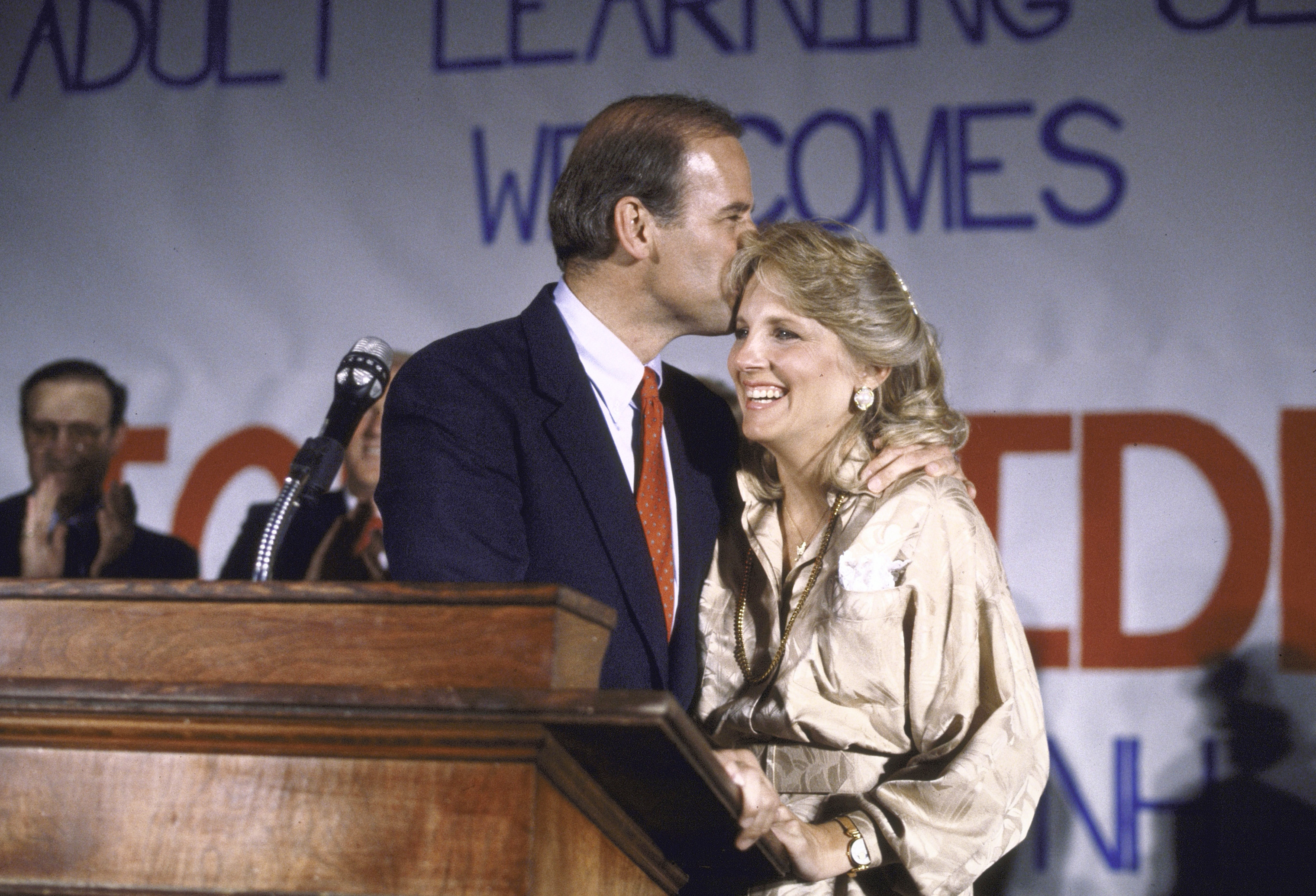
After attending events and dinners with Joe, I’d come home and throw myself on my bed in my sparse apartment. Exhausted, I’d stare at the divots in the ceiling and mentally check through all the things I had to do. When I finally stopped my mind from racing, only one thought was left: What am I doing?
Joe kept trying, asking me a third time, then a few months later, a fourth. My answer was still “not yet” — but over almost two years of being together, the reason had shifted again.
At this point, I was no longer afraid of marriage; I knew I could marry Joe. He was a good man and a caring partner, and I was unquestionably in love with him. He would make a great husband. And in the unlikely event that something went wrong down the road, I knew I could survive. As time moved me further and further from the pain of my earlier relationship, I realized that, as bad as it felt, I had survived. I was resilient.
It was also no longer about my job or having my space. I was happy spending most of my time with him and the boys. And I could see Joe would support my desire to have a career — he was always encouraging as I studied to get my master’s degree, and we had talked about the fact that teaching was a part of who I was. He even came to a student production of King Lear to support me in my studies. It was done in Kabuki style and was absolutely unbearable, but he sat through the entire thing. We laughed the whole way home.
I knew that marrying Joe wasn’t just about him. It was about Hunter and Beau, as well. They had endured the loss of one mother already, and I couldn’t risk having them lose another.
Joe often drove the boys to school. It was a big part of their day — getting special alone time with their dad every morning. Their shared ritual was to sing along to songs on the radio, and one of their favorites was the Helen Reddy hit “You and Me Against the World.” It’s a simple, beautiful song in which a mother sings to her child that she’ll always be there for her: When all the others turn their backs and walk away / You can count on me to stay.
That was their bond: one of shared memories, of grief, of absolute trust. It was them against the world. And they were asking me to join that sacred circle. They trusted me to step into their lives and give them the love and devotion that had been stolen from them. They weren’t afraid that I wouldn’t measure up. But I was. After all they had been through, I could never risk hurting them again. I had to be 100% sure that if Joe and I got married, it would be forever — for Beau and Hunter’s sake.
One afternoon in the spring of 1977, Joe stopped by my apartment on his way to the airport. He was heading out on a congressional delegation to South Africa, which meant we wouldn’t see each other for the next 10 days — our longest time apart since we’d started dating. I hugged him and told him to be safe, but something felt different. As he was walking out the door, he turned back to me.
“Look,” he said. “I’ve been as patient as I know how to be, but this has got my Irish up. Either you decide to marry me, or that’s it — I’m out. I’m not asking again.” His blue eyes, normally alight, seemed clouded with gray. “I’m too much in love with you to just be friends.”
I had known this moment would come. He’d first proposed almost two years before. Of course he wouldn’t wait forever. We stood for a moment looking at each other, and I nodded.
“When I come back,” he said, “I need an answer, yes or no. You don’t have to tell me when. You just have to tell me if.”
“Okay,” I told him. And then he was gone.
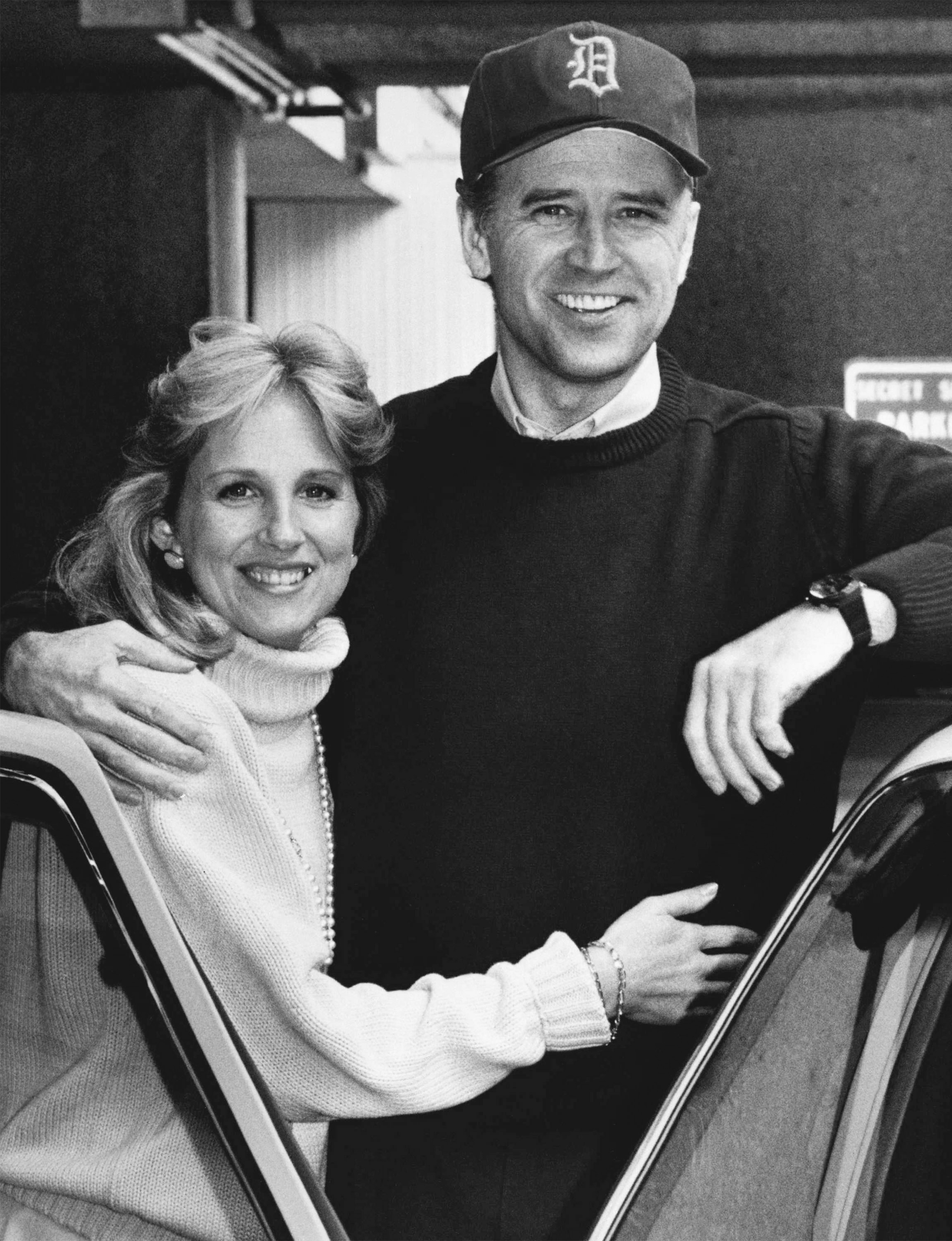
Over the next few days, I thought about my life — what it had been so far, and what it could be. I loved Joe. I adored the boys. I couldn’t bear the thought of losing them. When Joe told me this was the last time he would ask, I was sure he meant it. He was prepared to walk away forever.
The evening Joe got back from South Africa, he didn’t drive home from the airport but came straight to my apartment. I was expecting him to pick me up so we could go to a big family dinner at his house — with Mom Mom, Dada, Val and Jack, Frank and the boys — but he didn’t seem to be in much of a party mood when I opened the door. I invited him in, but even after the long flight, he had no intention of relaxing for a moment. He stood firm in my foyer and fixed his eyes on me. “I want to know your answer,” he said.
I could see that he didn’t want to lose me, but he would walk away for his boys. There was concern in the corners of his eyes, a sternness, and I wondered if the fears that were still nagging at the back of my mind were as visible. But even in the tension of that small entryway, I could feel his love, and I knew it was forever, unconditional. I knew that he and the boys had my heart, and we were too intertwined now to protect ourselves from each other. Marriage license or not, we were already a family.
I looked at him and quietly said, “Yes.”
Relief flooded his face as he wrapped me in a hug. Then he held my shoulders and looked me straight in the eye. “I promise you, your life will never change,” he said.
In the years since, I’ve thought about Joe’s promise that night, that life would “never change.” It would turn out to be wildly untrue, of course. Life is change. And our lives would be more amazing and more unbearably difficult than we could have known as we smiled at each other over dinner that night. There have been tragedies. We have had our hearts wrung and broken. But the only place we are safe from all the dangers of love is hell. And one thing in my life has stayed the same: Joe and I have always had each other.
From Where the Light Enters: Building a Family, Discovering Myself by Jill Biden. Copyright © 2019 by the author and reprinted by permission of Flatiron Books.
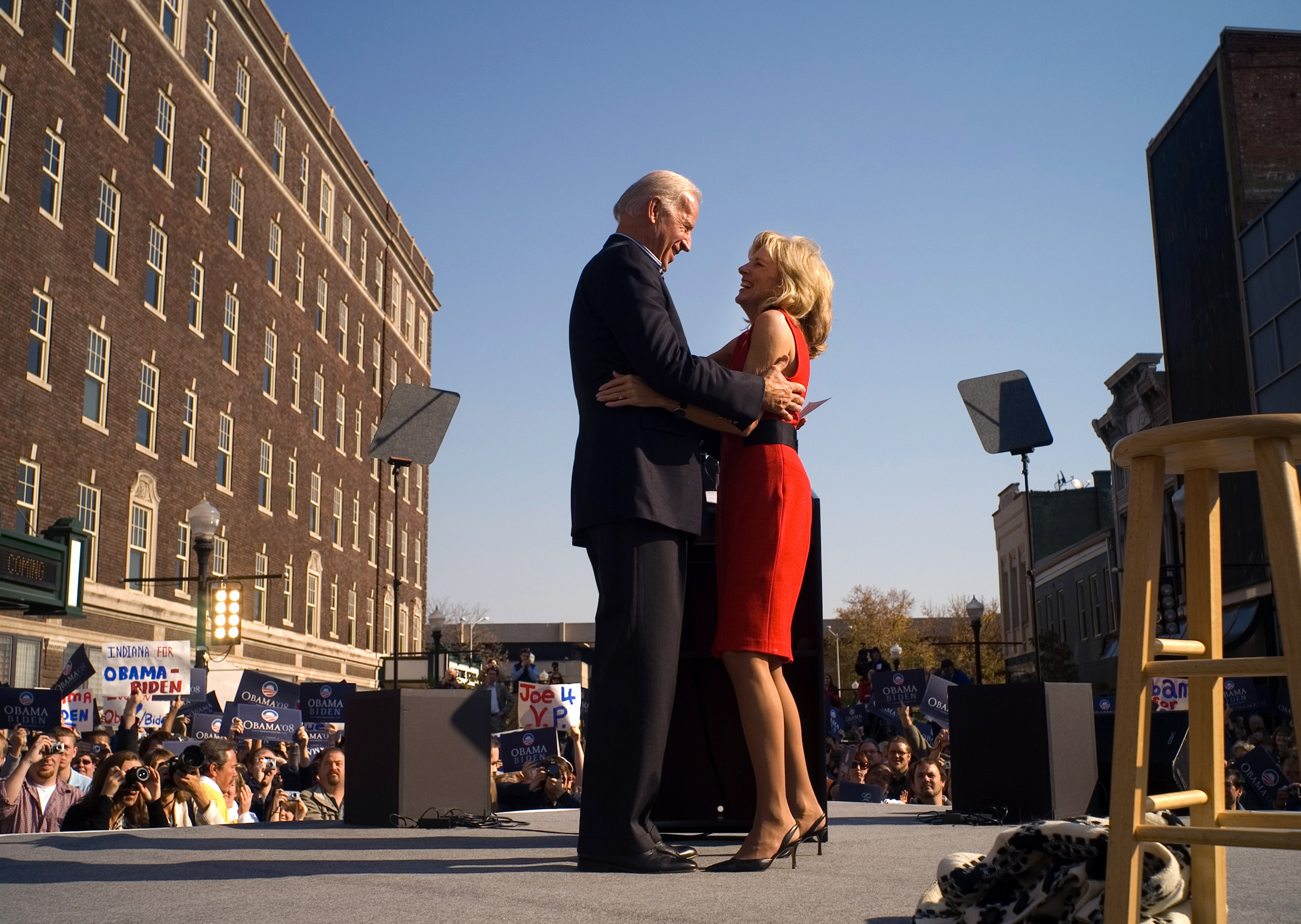
- Why Trump’s Message Worked on Latino Men
- What Trump’s Win Could Mean for Housing
- The 100 Must-Read Books of 2024
- Sleep Doctors Share the 1 Tip That’s Changed Their Lives
- Column: Let’s Bring Back Romance
- What It’s Like to Have Long COVID As a Kid
- FX’s Say Nothing Is the Must-Watch Political Thriller of 2024
- Merle Bombardieri Is Helping People Make the Baby Decision
